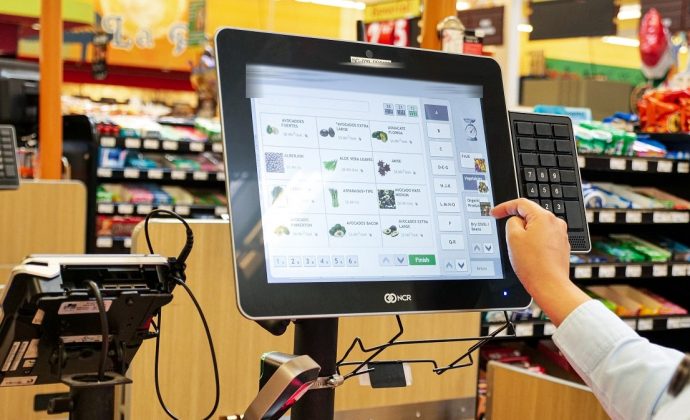As a retail business owner, you would want to get the best out of your POS system. While your POS system might help you manage inventory, accounting, sales, employees, customers, and everything in between, sometimes you need more out of such systems. For instance, not all POS come with a complete retail business solution, which makes it difficult to manage and maintain your business in one place. In such cases, you might find yourself looking for alternatives or finding a way to integrate new systems with your POS. This is exactly what POS integration is. What is POS Integration? While most retail business owners will promptly be able to answer what a POS is, the term POS integration is not familiar to many. Let’s first understand what POS integration is. POS integration is a streamlined connection between your POS and your retail business accounting and operation platforms. POS integration is becoming increasingly important within the retail enterprise. POS Integration for Retail Businesses POS system allows retail business owners to manage operations and sales, and purchases in one place. Nevertheless, in order to be more effective and efficient, a POS system must be integrated with other existing technologies such as an Enterprise Resource Planning system. A cloud-based POS system allows you to easily connect the system with other technologies. Since cloud-based POS system makes use of cloud servers in real-time, the data your POS shares and receives is shared with the integrated systems as well. This real-time back and forth of information helps create an efficient network of systems, allowing you to automate a lot of tasks for your business. Nevertheless, not all POS integrations are equal. In order to make integration work, you must first consider your requirements as a retail business owner. In this post, we will discuss a few POS integrations and give you some insights into what you need to consider before integrating your POS with another system. Let’s take a look: Marketing POS Integration Marketing POS streamlines customer data from your point of sale system to your marketing system. If you use text or email-based marketing, then this integration can help you automatically create customer records, including their names, email ids, phone numbers, and other information in your marketing system. With a marketing POS in place, you can save time and effort by not having to manually export all the customer data and import it into your POS. Moreover, marketing POS systems have evolved to offer a more nuanced approach in exporting customer information. Advance marketing POS can communicate customer purchase history, purchase frequency, total spent, the total number of orders as well as custom information associated with customers. Using advanced marketing POS, you can create more efficient and targeted campaigns. E-Commerce POS Integrations E-commerce POS integration is one of the more popular forms of integrations. More often than not, an e-commerce website is integrated with a POS to sync and manage inventory. E-commerce integration is also essential when it comes to operating an online retail store as it helps minimize the room for errors and simplifies the order placing system. With the inventory management feature offered through e-commerce integration, retailers can keep up with their stock and the number of orders they have to dispatch, all through a simplified interface. An e-commerce integration can also help keep track of product descriptions, price, name, orders, and the customers buying those products. Additionally, with e-commerce integration, retail business owners can also manage loyalty programs, gift cards, and coupons, as well as maintain the sales of multiple locations in one place. Accounting POS Integrations An accounting integration helps to simplify and communicate sales data directly to your accounting system. Besides managing sales data, accounting POS integrations can also communicate invoices, customer data, purchase orders, and inventory data. Before going on with the decision of integrating an accounting system with your POS, make sure to consult with your accountant and take in their input on the process. The reasons for integrating an accounting POS system may range from keeping track of sales and maintaining invoices with customer data, to tracking account receivables and to keeping an eye on inventory values. Employee Management POS Integrations Retail stores have unique staffing needs, which could change according to the time of the day and business of the store. In order to cater to that, retail owners need a way to easily change schedules and notify the employees of the same. With employee management POS integrations, your employees can create their own profiles while allows them to be in sync with the needs of the store. Employee management integrations allow you to track the hours, schedule, and performance of your employees and streamline the onboarding process, as well as make it convenient to add more employees into the system. Payment POS Integrations With integrated payment, retail business owners can align the system and platform to streamline the payment side of the business. Retail business owners can connect their POS with their payment processor to keep the data flowing smoothly from one platform to another. Integrated payment POS helps retailers eliminate the need of keying customer and credit card information at the check-out counter, making the check-out process simple and quick. Since the POS system is integrated with the payment processor, all the necessary information is ready as soon as you initiate your payment terminals. Conclusion It is not easy to run a retail business, especially in the ever-changing and technologically-dependent era that we are living in. Nevertheless, with the right tools at your disposal, you can create efficient solutions to keep your business running smoothly while putting yourself on the path to modern retail success.
Understanding POS Integration for Retail Businesses


